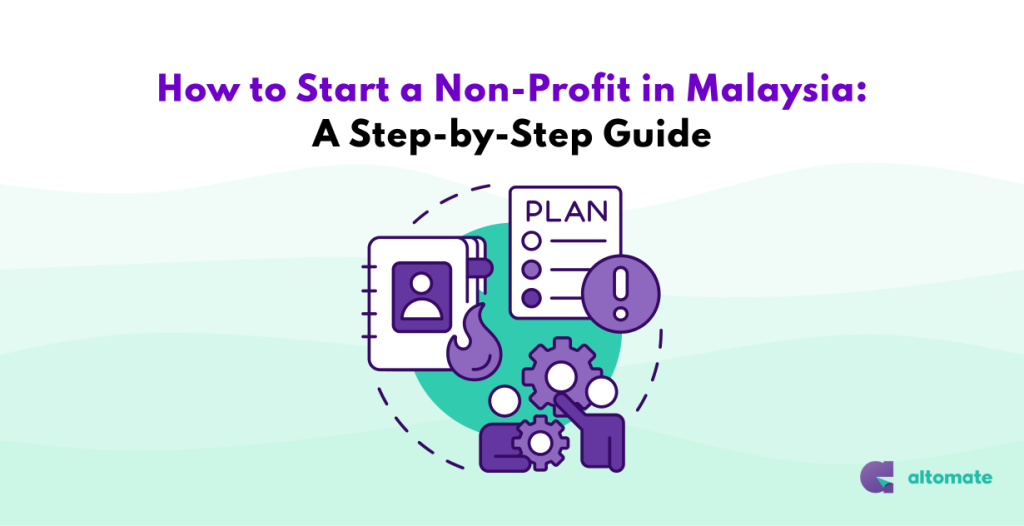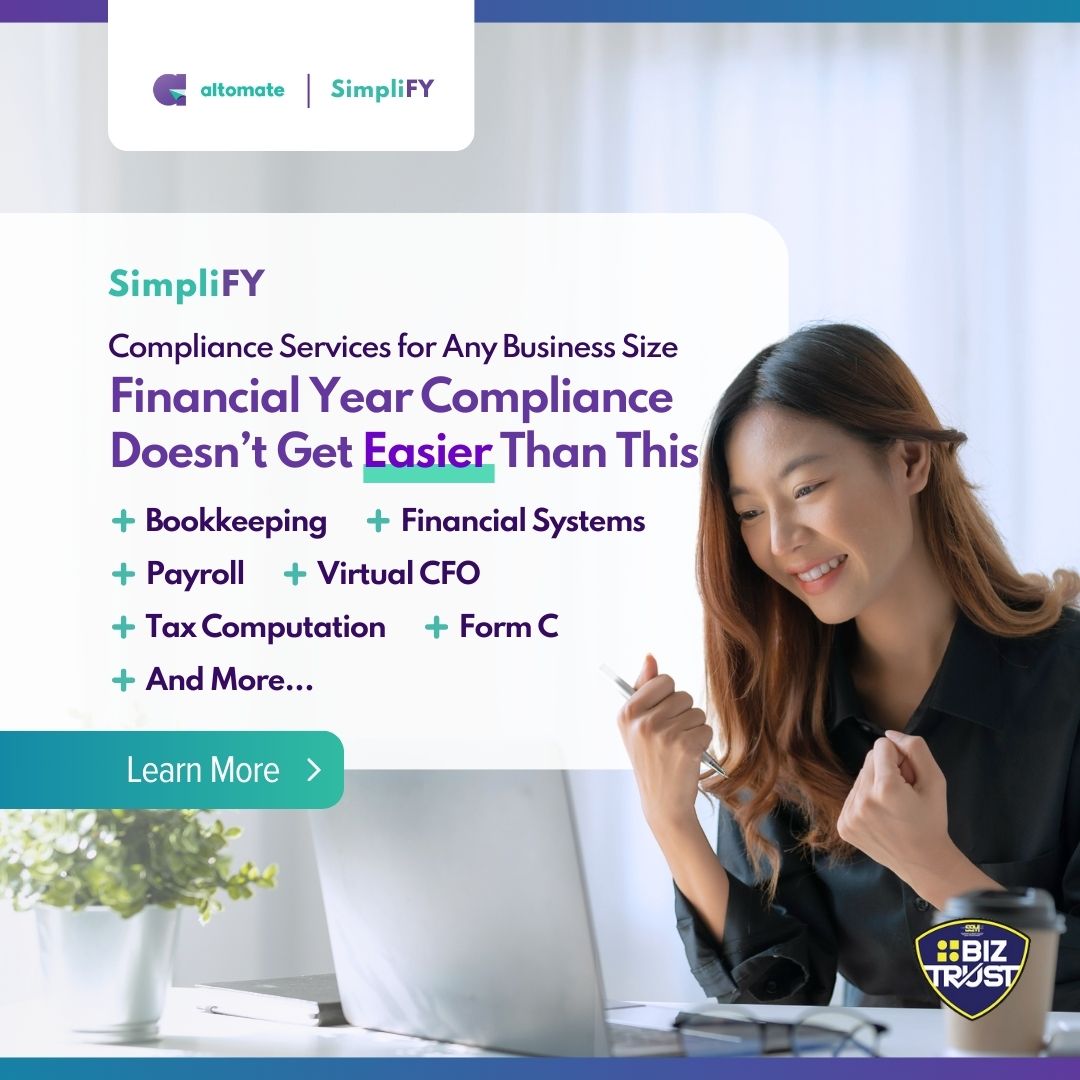
Reading Time: 5 Minutes
Starting a non-profit in Malaysia is a way for individuals and groups to make a meaningful impact on society. Whether addressing social issues, aiding underserved communities, or promoting environmental sustainability, non-profits play a crucial role in shaping a better future. As of 2024, non-profits are essential, with 95,694 non-governmental organizations (NGOs) registered under various legal structures.
However, starting one involves legal registrations, compliance with regulations, and proper structuring.
1. Understanding the Types of Non-Profit Organizations in Malaysia
Before you begin, it’s crucial to understand the different types of non-profit entities you can register in Malaysia:
- Societies (Persatuan): These are typically formed for social, cultural, or charitable purposes and are governed by the Societies Act 1966. They are registered with the Registrar of Societies (ROS).
- Companies Limited by Guarantee (CLG): A CLG is registered under the Companies Act 2016, without shareholders, where members act as guarantors instead. This structure is often used for charities, foundations, and professional associations.
- Trusts and Foundations are usually established under a trust deed and must comply with the Trustees (Incorporation) Act 1952.
- Non-Governmental Organizations (NGOs): NGOs can take different legal forms, including societies or CLGs, and often work on advocacy, humanitarian, or social initiatives.
Choosing the proper structure depends on your objectives, funding sources, and compliance preferences.
2. Registering a Non-Profit in Malaysia as a Society
If you decide to register as a society, follow these steps:
- Gather at Least Seven Members: A society requires a minimum of seven founding members.
- Prepare a Constitution: Outline the objectives, membership structure, financial management, and governance rules.
- Submit an Application to ROS: The application can be submitted online through the eROSES system.
- Approval and Certificate of Registration: The approval process can take several months, after which a certificate of registration is issued.
3. Setting Up a Company Limited by Guarantee (CLG) for Your Non-Profit in Malaysia
A CLG is a preferred structure for non-profits requiring a formal corporate entity. The steps include:
- Reserve a Name: Check name availability with the Companies Commission of Malaysia (SSM).
- Prepare a Constitution: Define the governance, objectives, and financial management structure.
- Appoint Directors and Members: At least two directors and one member are required.
- Submit Incorporation Documents: File the necessary forms with SSM.
- Obtain a Company Registration Certificate: Upon approval, you will receive a registration certificate, allowing you to operate legally.
4. Compliance and Tax Exemptions for Non-Profits in Malaysia
Once registered, your non-profit must comply with ongoing regulatory and tax obligations:
- Annual Reports and Financial Statements: CLGs must submit audited financial statements to SSM.
- Income Tax Exemptions: Apply for tax exemption under Section 44(6) of the Income Tax Act 1967 through LHDN (Inland Revenue Board of Malaysia).
- Fundraising and Grants: If raising funds publicly, you may need a permit from the Royal Malaysia Police (PDRM) under the House to House and Street Collections Act 1947.
In order for your non-profit to stay tax-compliant. Consider Altomate’s Tax Compliance Services which include income tax exemption applications and regulatory reporting support.
5. Setting Up a Bank Account and Financial Management for Your Malaysian Non-Profit
A dedicated non-profit bank account is necessary for proper financial management. Most banks require:
- Registration certificate (ROS/SSM document)
- Board resolution authorizing account opening
- Constitution or trust deed
- Identification of authorized signatories
Proper bookkeeping and payroll management ensure transparency and compliance with donor expectations. You can manage your finance seamlessly with Altomate’s Payroll and Bookkeeping Services, ensuring transparency and compliance for your non-profit’s financial operations.
6. Hiring Employees and Volunteers for Your Non-Profit in Malaysia
Your non-profit may require staff and volunteers to run operations effectively. Key considerations include:
- Employment Contracts: Ensure contracts comply with the Employment Act 1955.
- Volunteer Agreements: Define roles, expectations, and benefits (if any).
- Payroll & Contributions: Register employees with EPF, SOCSO, and EIS for statutory contributions.
7. Marketing and Outreach for Your Non-Profit in Malaysia
To attract donors, volunteers, and beneficiaries, you’ll need an effective marketing strategy:
- Website & Social Media: Create an informative website and engage with supporters on Facebook, Instagram, and LinkedIn.
- SEO & Content Marketing: Optimize content to rank higher on search engines and attract more visibility.
- Public Relations: Engage with media outlets to spread awareness about your cause.
8. Applying for Grants and Donations for Malaysian Non-Profits
Many organizations rely on grants and corporate sponsorships for funding. Common grant sources include:
- Malaysia Government Grants (e.g., from Yayasan Hasanah, MyKasih Foundation)
- International Grants (e.g., United Nations, Asia Foundation)
- Corporate Social Responsibility (CSR) Funds from private companies
- Crowdfunding & Donations via platforms like Sedunia and KitaFund
To enhance credibility, ensure proper financial reporting and transparency when starting a non-profit in Malaysia.
9. Scaling and Expanding Your Non-Profit in Malaysia
Once your non-profit in is running successfully, consider scaling by:
- Expanding Programs: Launch new initiatives aligned with your mission.
- Building Partnerships: Collaborate with government agencies, NGOs, and corporate sponsors.
- Advocacy & Policy Influence: Engage in policy discussions to drive systemic change.
Making an Impact
Starting a non-profit in Malaysia requires careful planning, legal compliance, and strategic fundraising. Whether you register as a society or a CLG, proper bookkeeping, payroll, and tax compliance are essential for long-term sustainability. Your organisation can make a meaningful impact with the appropriate legal support and financial management.
To streamline your non-profit’s financial year compliance, consider Altomate’s SimpliFY package. This comprehensive solution offers bookkeeping, tax filing, payroll, and Virtual CFO services tailored to meet the unique needs of organizations like yours. The SimpliFY package helps you focus on your mission while efficiently meeting all regulatory requirements.
Explore how Altomate’s SimpliFY package can support your non-profit’s journey towards success. Contact Altomate for a free consultation or to connect with our specialists today.








